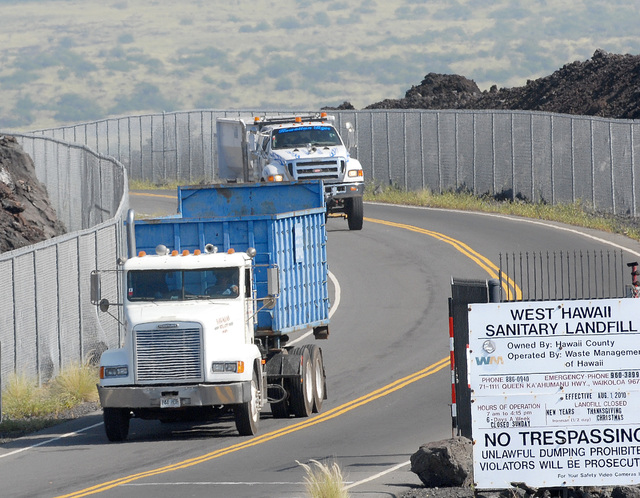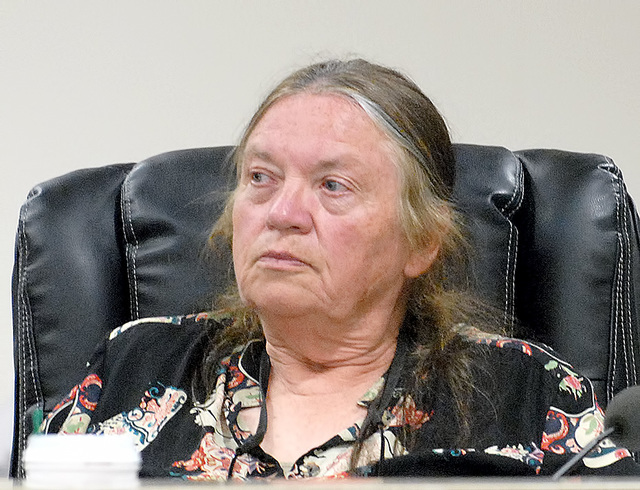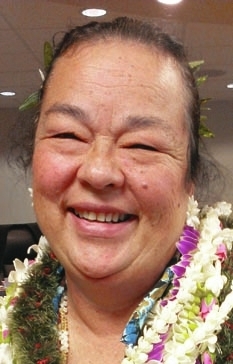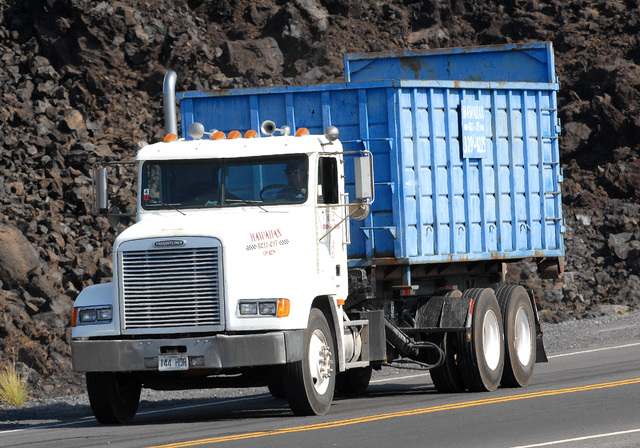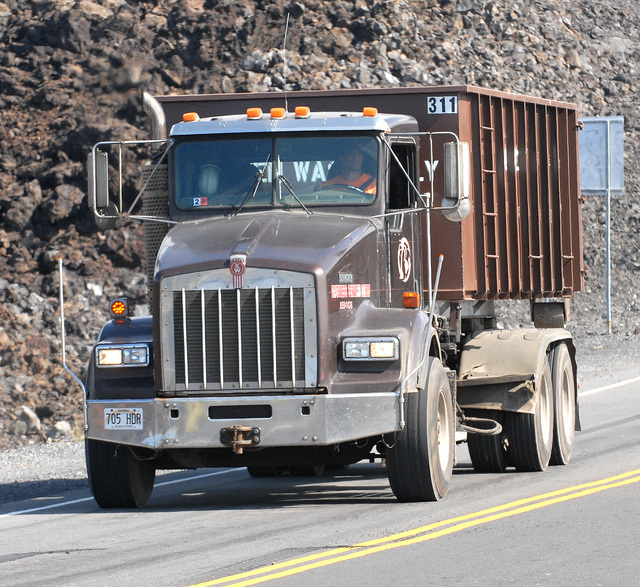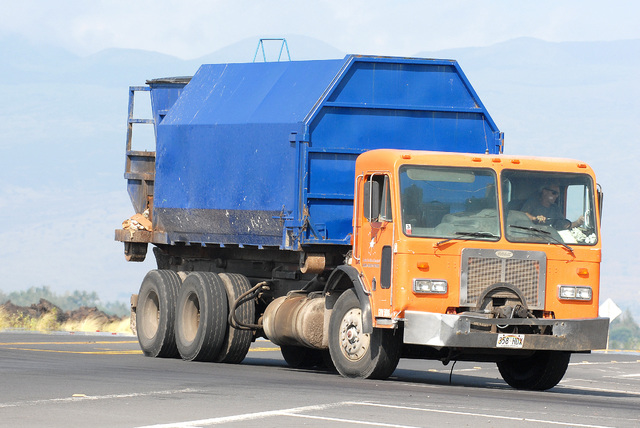Cross-county garbage hauling moved a step closer to reality Wednesday, with the Environmental Management Commission’s unanimous approval of a bill giving the mayor’s administration much more leeway in deciding whose trash goes where.
The measure, Bill 100, makes allies of Kohala Councilwoman Margaret Wille, the bill sponsor, and Environmental Management Director Bobby Jean Leithead Todd, who have long been at odds over environmental issues. The bill now goes back to the County Council, which last week gave it a favorable recommendation.
“What we want is the best policy islandwide,” Wille said.
Leithead Todd said the bill will serve a twofold purpose. First, it will lower tipping fees at the West Hawaii landfill at Puuanahulu by allowing the county to get a discounted fee by reaching a minimum level of waste. Second, the county can use the empty trucks to haul mulch from the West Hawaii landfill back to East Hawaii.
The Puuanahulu landfill has been exceeding the storage capacity of mulch allowed under its state Department of Health permit because of low demand, while Hilo residents can’t get enough of the stuff. The county has had to delay a Hilo reuse center as it dipped into the money earmarked for it in order to pay for trucking the mulch.
Two trucks per day hauling garbage west would cost the county about $5,000 per month but save $60,000 in tipping fees, for a net savings of $55,000 per month, she said. The county currently pays landfill operator Waste Management Inc. to dump 8,500 tons per month in the landfill, but would get a reduced rate by increasing the amount to 9,000 tons per month, or 300 tons per day.
“For me, it’s a win-win,” Leithead Todd said. “The bill is not intended to let us divert all the rubbish to West Hawaii.”
The trash would be trucked over Saddle Road and then to Waikoloa Road and on to Queen Kaahumanu Highway.
Wille said past opposition to trucking by a previous County Council could have been due to no apparent commitment by the administration to a zero waste plan that will cut garbage going to the two landfills. Hilo’s landfill has been said to be within five years of reaching capacity for about a decade, but so far, the county has been able to continue putting garbage there without having to build a new one.
“I think in the past, the opposition was primarily to trucking everything over here to the west side,” Wille said.
The county is currently in the process of selecting a contractor for an ambitious organics diversion project that will remove much of the green waste, food, paper and compostable plastics from the waste stream and create a compost that can be sold to the public. Four new HI-5 recycling centers have also recently opened at transfer stations.
Garbage from 12 transfer stations is already being trucked to the West Hawaii landfill, which has an expected life span of another 36 years, or 25 years if the Hilo garbage stream is added. Garbage as far east as Laupahoehoe on the north side of the island and Naalehu on the south side is currently trucked west to Puuanahulu.
The bill gives the administration flexibility to send waste, except compostables and recyclables, from any transfer station to either the Puuanahulu or Hilo landfill under certain conditions.
Garbage could be sent to either landfill to avoid penalty fees, to meet designated minimum volumes to qualify for discounted fees or when repairs or improvements are being made at one of the landfills. Under current law, the mayor, during a time of declared emergency may, by executive order, direct the transportation of materials from a transfer station to a landfill as deemed practicable and necessary.
A “pilot study” by the Department of Environmental Management in 2012 caused outrage in West Hawaii and resulted in the ban. Rubbish trucking proposals had been a contentious issue for island residents for years, and the revelation a pilot project was ongoing came days after Mayor Billy Kenoi told West Hawaii residents the county had no plans to transport the trash.







